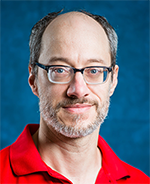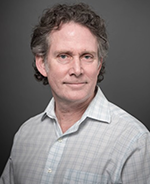Scott Oser and Douglas Bonn received CAP Medals
The Canadian Association of Physicists just announced their 2019 medal recipients. Congratulations to PHAS Professors Dr. Scott Oser and Dr. Douglas Bonn, who have been recognized for their significant contributions to physics in Canada this year!
 Dr. Scott Oser received the CAP-TRIUMF Vogt Medal for Contributions to Subatomic Physics. First introduced in 2011, the purpose of this award is to recognize and encourage outstanding experimental or theoretical contributions to subatomic physics. Scott was cited for his contributions to the study of neutrino oscillations with the SNO and T2K experiments, and to experimental searches for dark matter with SuperCDMS.
Dr. Scott Oser received the CAP-TRIUMF Vogt Medal for Contributions to Subatomic Physics. First introduced in 2011, the purpose of this award is to recognize and encourage outstanding experimental or theoretical contributions to subatomic physics. Scott was cited for his contributions to the study of neutrino oscillations with the SNO and T2K experiments, and to experimental searches for dark matter with SuperCDMS.
"He has demonstrated excellence in hardware design and construction, data analysis, scientific interpretation of the results, organization, and leadership. The award is in recognition of the breadth of his scientific endeavours, demonstrable expertise, and high impact in each experiment."
Scott has been a leader in the study of neutrino oscillations and dark matter through his contributions to the Sudbury Neutrino Observatory, T2K, and SuperCDMS experiments. He played a key role in SNO's seminal publications in 2001-2002, implementing the signal extraction fits that determined the flux and uncertainties. He was also a founding member of the T2K experiment, and has played a leading role in T2K's near detector; his efforts resulted in T2K being the first experiment to observe electron neutrino appearance in oscillation, the first observation of the appearance of a specific neutrino flavour as a result of oscillation. He was national spokesperson of the Canadian long-baseline neutrino group from 2010-2015. He is currently leading the development of a new data acquisition and trigger system for the SuperCDMS dark matter experiment, and focusing on analysis techniques to extend the energy reach and background suppression in dark matter analyses.
"I feel truly honoured to receive the 2019 CAP-TRIUMF Vogt Medal," said Scott. "Looking over the impressive list of previous winners is humbling for me, and only amplifies my thanks for this recognition. As the first winner from UBC, where Erich Vogt was a veritable institution and an inspiration to many, this is a particularly meaningful honour for me."
 Dr. Douglas Bonn received the CAP Medal for Lifetime Achievement in Physics, for his accomplishments in quantum materials that have advanced our understanding of high-temperature superconductors. This CAP medal was introduced in 1956, awarded on the basis of: Distinguished service to physics over an extended period of time, and/or; Recent outstanding achievement.
Dr. Douglas Bonn received the CAP Medal for Lifetime Achievement in Physics, for his accomplishments in quantum materials that have advanced our understanding of high-temperature superconductors. This CAP medal was introduced in 1956, awarded on the basis of: Distinguished service to physics over an extended period of time, and/or; Recent outstanding achievement.
Doug's main area of research has been unconventional superconductivity, studied through infrared spectroscopy, magnetic measurements, high-field transport measurements, microwave spectroscopy, and scanning tunneling microscopy/spectroscopy. Since 1989, this has included a team effort with Walter Hardy (also a PHAS faculty member) and Ruixing Liang on crystal growth of high temperature superconductors that has fueled their experimental techniques, and many collaborative projects in Canada, the USA, and Europe. Their emphasis has been the growth of very clean materials with few defects of any kind. This focus on working with stoichiometric compounds that can be grown with very few defects has led to many key results in the field, often because the influence of defects can mask or alter the properties of materials with unconventional superconducting states.
In parallel, Doug has been developing an innovative approach to teaching introductory physics laboratories, moving away from teaching physics concepts, and instead emphasizing the development of students' ability to reason quantitatively with data. The success of this approach has led to a complete transformation of first-year laboratory teaching at UBC and is being considered at a number of institutions in Canada and the USA.
On receiving this award, Doug said, "I am grateful and humbled by this recognition, which is for work that has always been done in a multitude of strong teams with many other researchers. Canada, and CAP, have always been a welcoming place for such a collaborative research approach."
They will be presented with his medal at a Medallists' Recognition Dinner in Vancouver on Wednesday, June 5, 2019; the Awards Dinner is one of the featured events of the CAP Congress hosted by Simon Fraser University in Burnaby, BC, from June 2-7.
Congratulations again to both!